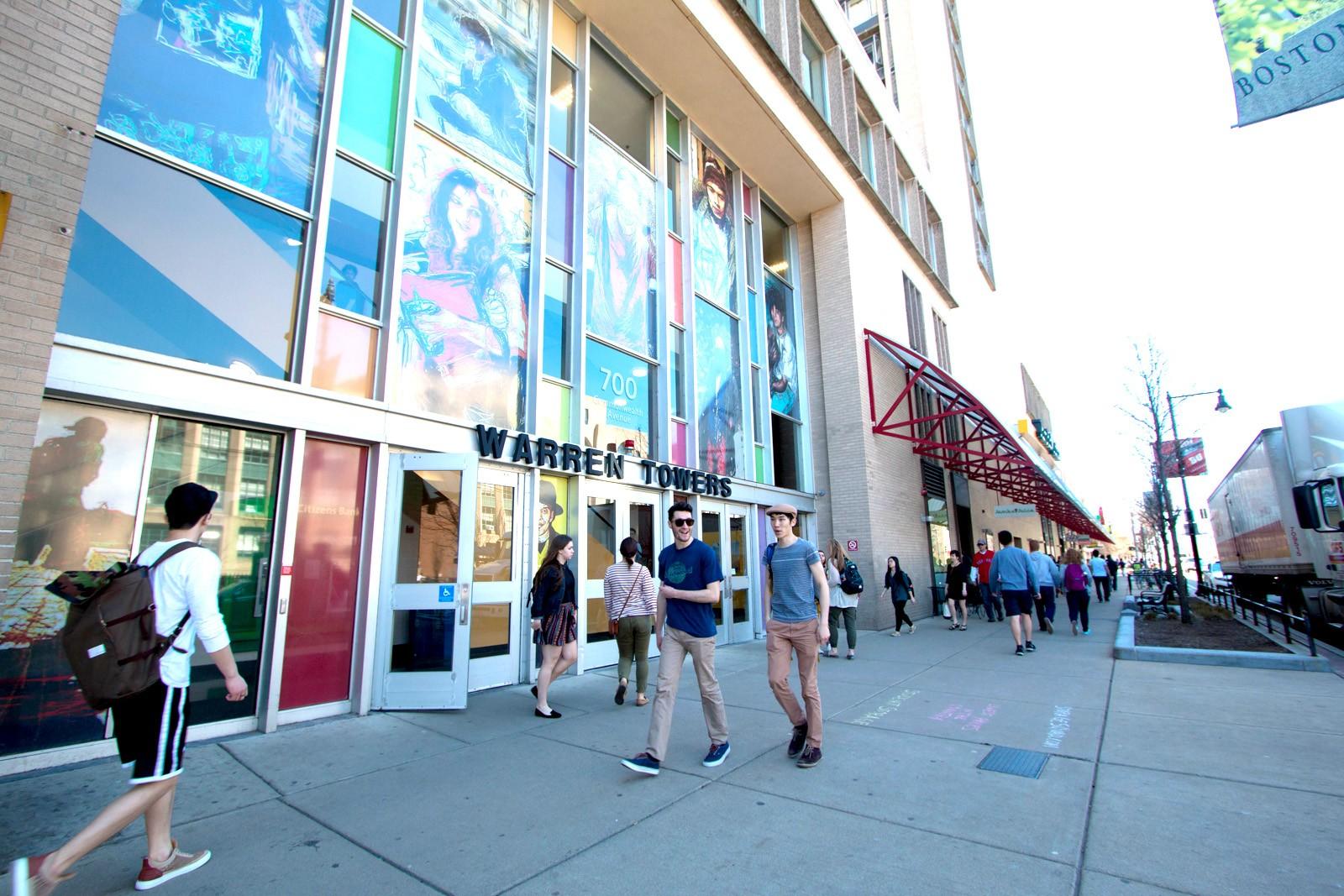
More on-campus housing is available to Boston college students than before, according to the first-ever comprehensive report on trends in student housing released by Boston Mayor Martin Walsh’s office April 9.
In fall 2014, Boston colleges and universities added 1,395 dormitory beds to the previous year’s 37,783. Additionally, there were 38,232 Boston college students living off-campus, out of the total 148,402 students studying in the city, the report found. Mayor Walsh said he hopes to create more on-campus housing by the year 2030, potentially opening up 5,000 new units of off-campus housing to the Boston market, according to a Thursday press release .
“It is critical that we work with our colleges and universities to better understand how to provide safe and affordable housing for both our student population and our residents,” Walsh said in the release. “Our institutions of higher education make up the fabric of our City, and I thank them for their partnership in these efforts and look forward to continuing this work to create a thriving and healthier Boston.”
Only 673 BU undergrad students lived in off-campus housing in Boston in fall 2014, the report stated. Although this figure seems small, it does not account for students studying abroad or for those who lived off-campus in Brookline or Cambridge, two neighborhoods not governed by the City of Boston. BU housed approximately 11,100 undergrads on campus in the fall, according to the report.
The City of Boston has pushed for safer student housing over the past few years, following the death of BU student Binland Lee an Allston house fire in 2013. In January, the city began inspecting off-campus residences that might be violating a 2008 amendment to the Boston Zoning code that restricts overcrowding, the Daily Free Press reported on Jan. 29.
BU spokesman Colin Riley said the university has boasted at least a 75 percent on-campus housing rate for the past 15 years.
“I think it’s been something that we’ve worked very hard at and we’ve achieved back in 2000 with the opening of the first Student Village on Buick Street,” he said. “Once we opened that we’ve been above 75 percent of our students living on-campus. That’s what the City asked of us and that’s what we’ve been able to achieve.”
BU prioritizes on-campus housing because students who live on campus succeed academically and socially, Riley said.
“We know that students who live in on-campus housing tend to do better academically,” he said. “They are closer to class and programming and other resources … We continue to have high quality residences that are designed to retain upperclass[men] students.”
John Conroy, the founder of the Boston-based realty firm East Coast Realty, said he is pleased by the report because college students can be tricky clients.
“Whenever you work with students it becomes more challenging because they don’t have an income per se and you have to then work with the student and their parents,” he said. “We have to bear the burden of making sure that they are well-supported by their parents. So it’s not just one person you have to deal with, [and] often if there are two roommates, you can be dealing with up to six people in order to put a deal together.”
Last year, Boston University student Liz Morlock faced the decision of whether or not to continue living on campus. Though Morlock, now a senior in the College of Fine Arts , eventually moved off campus to save money, she said many do not have the same luxury because of housing requirements written into financial aid packages, such as the Charles River Housing Grant.
“Students cannot afford their education with the ridiculous cost of tuition and so they take these scholarships to be able to afford to go to a school like BU,” she said. “I think these scholarships are a feeble attempt to feign generosity by a major university and they are the reason students are staying on campus.”
However, Morlock still enjoyed the convenience and accessibility of her on-campus housing situation, she said.
“Before I moved off campus, I lived in 722 [Commonwealth] Ave .,” she said. “What I definitely don’t miss is the ridiculous cost of housing for the short time you live there.”
Several BU students said they believe living on campus provides comfort, security and convenience.
Nicole Ficher, a freshman in the College of Arts and Sciences , said she plans to follow the trend presented by the data and stay on campus throughout her time at BU because it fosters a better sense of community.
“I’m always here and my classes are nearby,” she said. “I feel like I’m in the center of things and I always know what kind of things are going on at school which I really like. Since it’s not really a typical campus, living on it makes me feel more connected.”
As a senior, Morlock said she does not notice these on-campus perks as much.
“I’m not usually home at all during the day, so I have a daytime campus life,” she said. “I also have several friends who live close by and no one is ever more than a T-ride away. I haven’t had any problems with communication and my friends on campus. I think people are living on campus because [of] either the convenience or they are forced to by scholarships that require them to live on campus.”
Lia Rivera, a freshman in the College of Communication , said she likes the feeling of security and connectedness on campus.
“I like living on campus because I never feel isolated and I’m surrounded by people my age,” Rivera said. “It makes me feel safer that I’m on campus because we have Blue Lights and [the Boston University Police Department] really accessible. We have security, as opposed to living off-campus where your only resource might be the Boston Police .”




















































































































